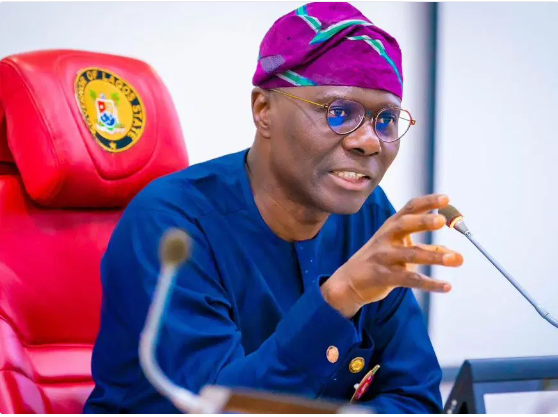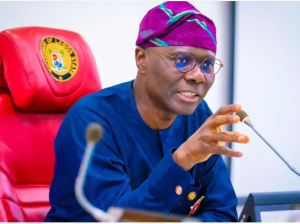
LAGOS GOVT DEMOLISHES 17 HOUSES ENCROACHING ON WATERWAYS
By: Sefiu Ajape
At least 17 buildings have been demolished by the Lagos State Government for encroaching on the right-of-way (RoW) of the Ikota River alignment.
The Commissioner for the Environment and Water Resources, Tokunbo Wahab, led a monitoring and enforcement team, accompanied by journalists, to the site on Saturday.
Wahab cautioned residents against acts that endanger the environment, warning that “nature always fights back when people neglect or abuse it through unlawful reclamation of wetlands.”
He revealed that the ministry had received reports months earlier about illegal reclamation activities aimed at narrowing the river’s natural course.
“We stopped them then, but we were alerted again recently that the encroachment had resumed aggressively, with attempts to sell land to unsuspecting buyers,” Wahab said.
He noted that the government had now taken decisive steps to halt further encroachment and clear all illegal structures along the alignment, adding that those responsible would be identified and prosecuted according to the law.
Addressing the issue of flooding in Lagos, Wahab explained that while it is impossible to eliminate flooding completely in a coastal state bordered by the Atlantic Ocean, lagoons, and rivers, the government continues to invest in infrastructure to reduce its impact.
“What we can do is reduce its effects through resilient infrastructure, which Governor Babajide Sanwo-Olu has consistently provided and maintained,” he said.
The commissioner lamented that despite daily desilting and drainage maintenance, some residents continue to obstruct waterways for selfish reasons.
He cited property number 156 as an example, saying, “It blocked the coastal road alignment and disrupted the natural flow of water. That property will be cleared to allow the Ikota channel to discharge freely into the Lagos Lagoon.”
Wahab emphasized that demolition is not always the state’s first approach, noting that the government often encourages developers to implement corrective stormwater designs at their own expense.
“Sometimes we ask developers to produce practical designs for stormwater discharge, but they must bear the cost, not taxpayers,” he said, describing it as “irresponsible for the government to fix problems created by private developers who profit from violating environmental regulations.”
During an inspection of the Lekki–Epe corridor, Wahab decried massive encroachment on wetlands originally designated to retain excess rainwater, revealing that drone surveillance exposed extensive environmental damage, including the destruction of coconut trees planted for soil stability.
He added that violators had been served demolition notices on September 26, ahead of planned transport infrastructure works along the corridor.
According to him, the inspection was aimed at aligning environmental protection efforts with the Ministry of Transportation’s Green Line Rail Project.
Also speaking, the Commissioner for Transportation, Oluwaseun Osiyemi, said the Green Line Rail Project, which will run from Marina to Epe, is expected to begin in December following stakeholder engagements and feasibility studies.
Osiyemi said some car dealers granted temporary use of power line spaces violated terms by erecting permanent structures on wetlands.
“As a state, we must enforce compliance and protect the environment while advancing our transport development agenda,” Osiyemi said.
He noted that the three-year Green Line Project forms part of Lagos State’s integrated transport plan designed to improve mobility across the metropolis.
Other areas inspected included Chevron Gate off Orchid Road, Partibon Homes, Oral Extension Phase 2, and Park View, Ikoyi.

